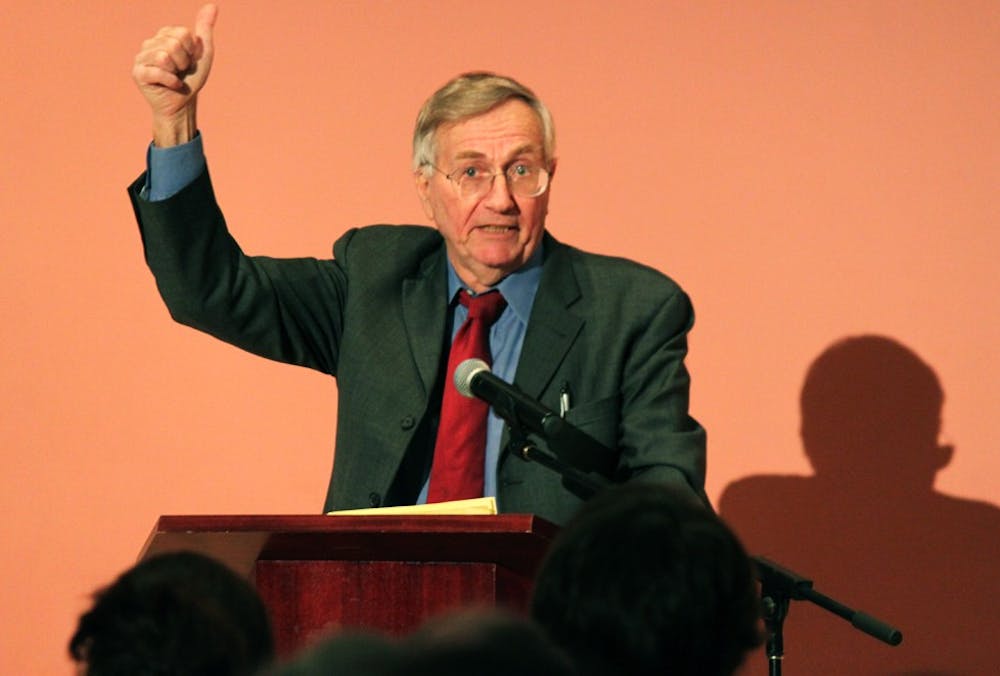When Pulitzer Prize-winner Seymour Hersh takes the stage, there are no illusions of humility or moderation on the journalist’s part. The audience knows exactly where he stands.
“I don’t have a laugh line to go out on. This is a serious foreign policy talk, and I have a point of view,” he said. “I say this not as someone who’s anti-American or a lefty, but as someone who talks to people inside.”
Hersh, who won the 1970 Pulitzer Prize for international reporting after breaking the story of the My Lai massacre during the Vietnam War, spoke to a packed audience in Gerrard Hall on Tuesday night about his opinions on current foreign policy and his extensive international reporting experience.
Hersh criticized President Barack Obama and the wars in Iraq and Afghanistan, arguing that the United States has no “national security implication” in those countries. Jumping from topic to topic without much cohesion, Hersh also discussed the future of Israel and Egypt.
Hersh has won five George Polk Awards, two National Magazine Awards and dozens of investigative journalism accolades.
“I write all these stories other reporters can’t get to — I’m just saying it like it is — because I have the sources I do,” Hersh said.
“The other reporters, they bitch and moan, but they know it. That’s why I get all these prizes all the time, because I know what I’m talking about.”
Hersh, who currently reports on U.S. foreign policy and national security for The New Yorker magazine, said the primary motivation for American foreign policy decisions in the Middle East over the past 50 years has been a desire for oil.
An audience member asked Hersh why Obama did not take a stronger stance during the protests in Egypt, and at first he replied, “How the hell do I know what he thinks?” before adding, “My guess is that he’s a coward.”



